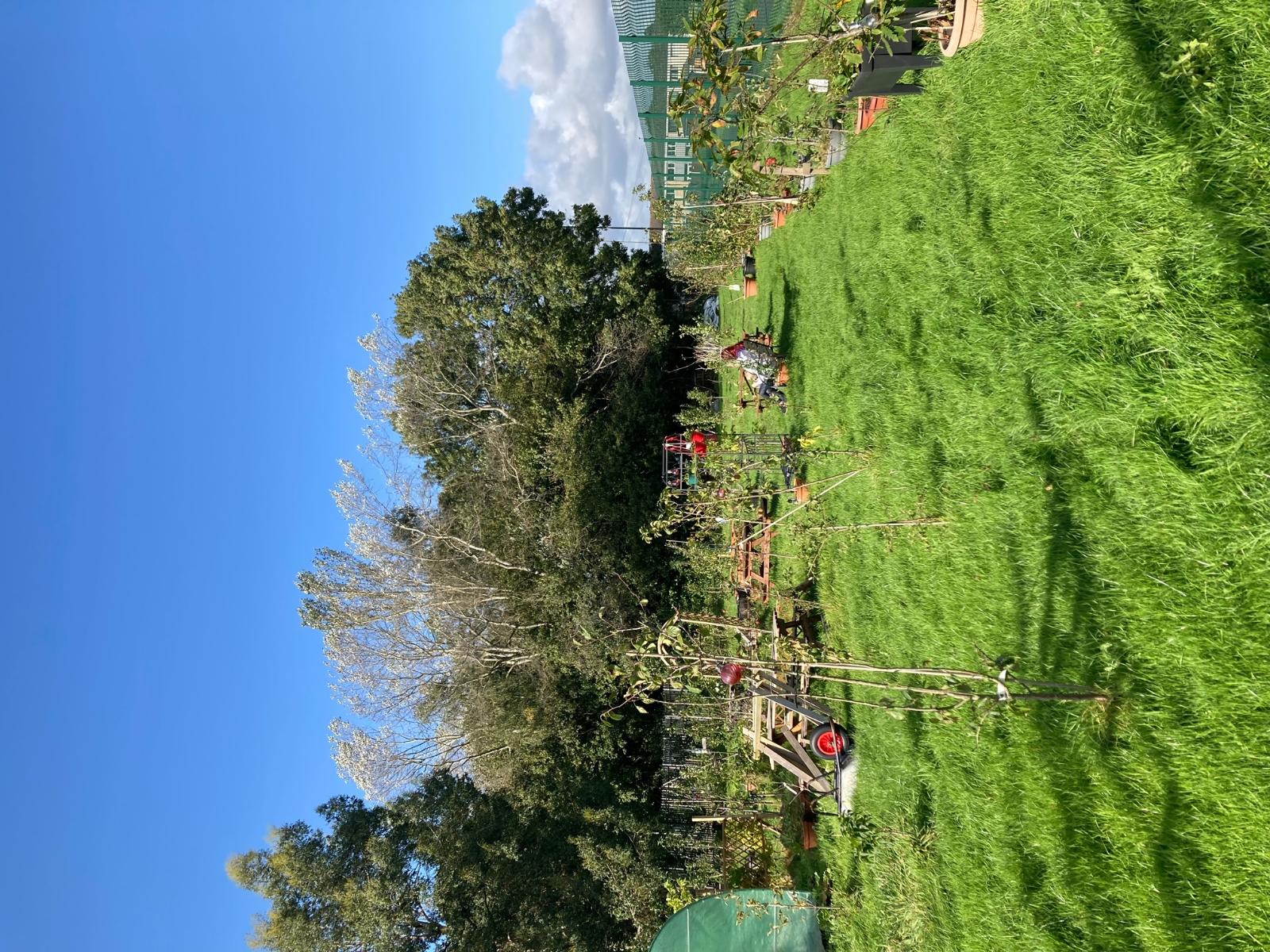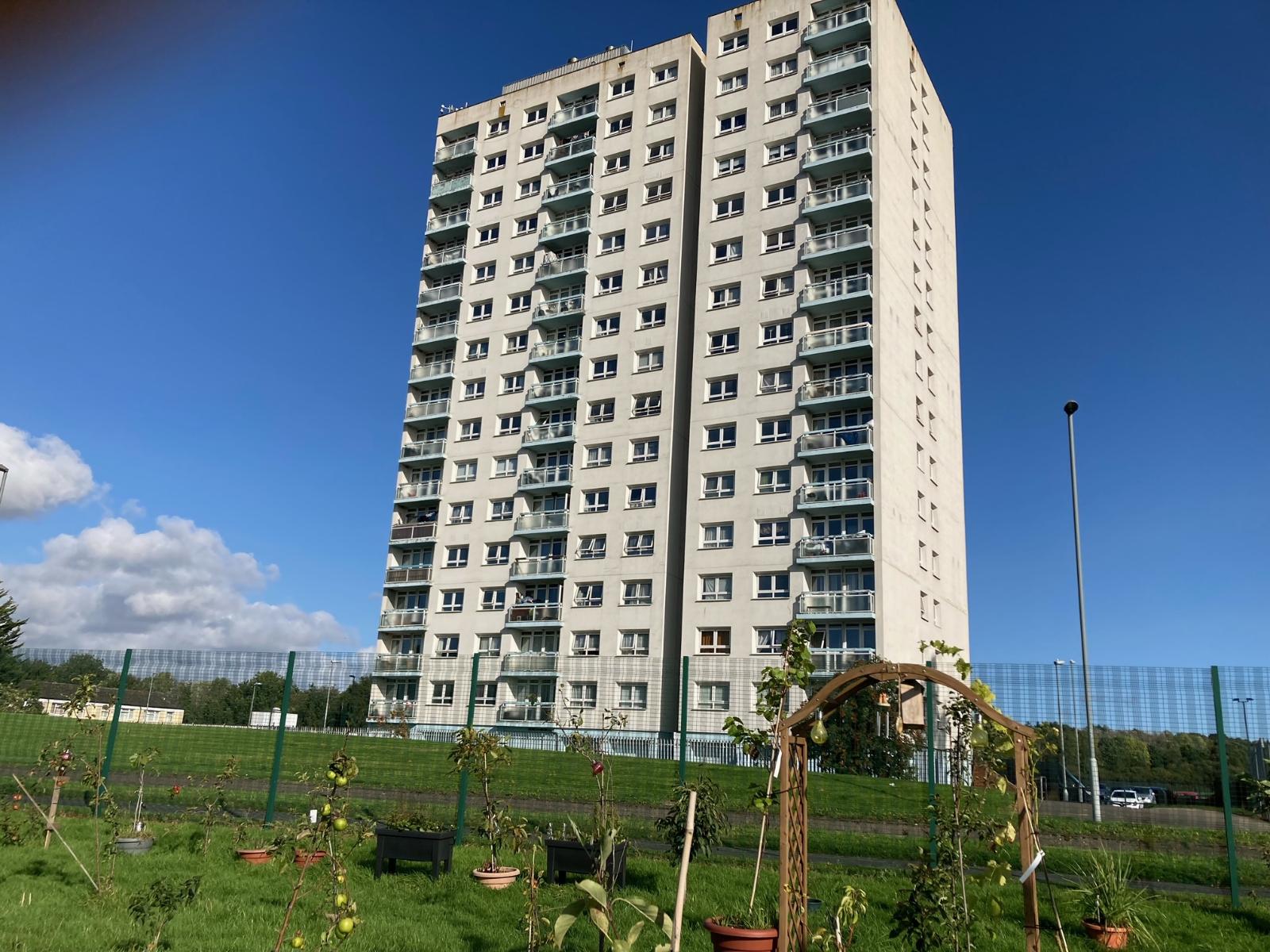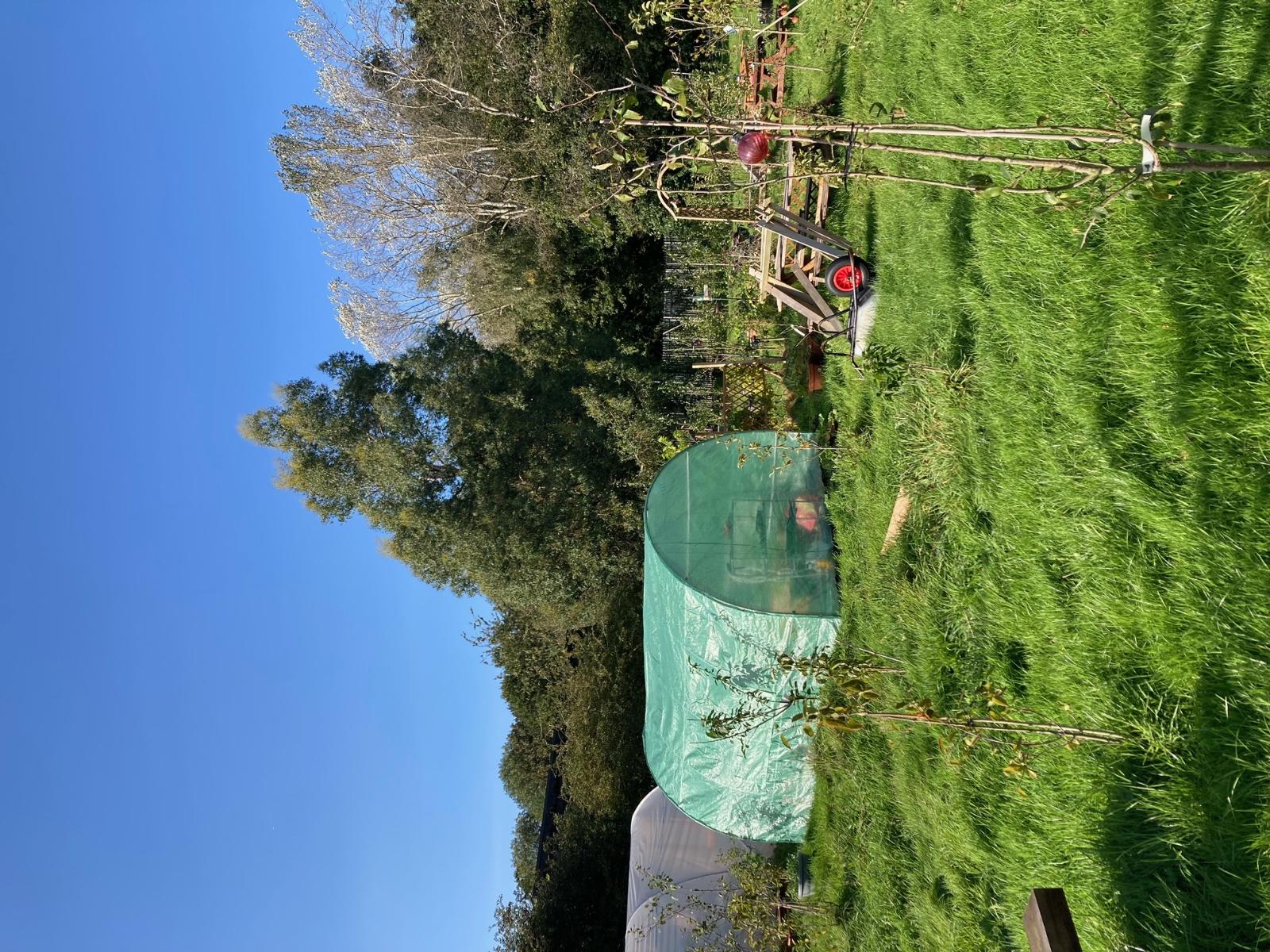An Orchard in a Food Desert
Kassy Price, GroundsWell's Community Blogger from Liverpool investigates the role our urban green spaces can play during the cost of living crisis.

An Orchard in a Food Desert
Due to the UK’s cost of living crisis, more and more families are struggling to make ends meet. Utility bills and food prices have skyrocketed and food banks are reporting a rise in the number of people coming through their doors. More food is being given out and fewer donations are being received, because people who were once living comfortably can no longer afford to give.
According to a survey by The Food Foundation charity, in June 2021 there were 7.3% households in the UK that were ‘food insecure,’ meaning people either skipped meals or didn’t eat enough due to money worries. The same survey in June 2023 shows a sharp increase, to 17% of households who do not have enough money to adequately feed themselves.
Citizens of Liverpool took to the streets recently, on a march led by the Right To Food campaign, who are calling for a solution to hunger and food insecurity in the city. They believe everybody has the right to good quality food, and protested for free school dinners and a change to wages and benefits, to make sure nobody is going hungry.
Food deserts are another problem in the UK. These are places where there aren’t enough supermarkets to supply the amount of people who live there, and healthy options like fruit, vegetables, fish and organic foods are unobtainable or overpriced. Shoppers then have to spend more to travel further afield, which has a knock-on effect on people’s health and living in a food desert can cause health problems such as obesity, cardiovascular disease and diabetes.
Food System Resilience
Not only has food become overpriced, but we have also faced shortages, some of which were brought on by the COVID-19 pandemic and Brexit. Food system resilience is the country’s ability to cope with disruptions to our food supply and other crises and stresses, such as extreme weather, outbreaks of disease, war, urbanisation, and climate change.

The pandemic brought shortages and empty shelves but it also made some people take an interest in where our food comes from. It made them realise how much we rely on our food system to go right but sometimes it can go wrong. It made them sit up and think about how they would cope in an emergency.
When times are tough, people have no choice but to look for ways to adapt. This was seen during the Second World War, when the British public were encouraged to grow their own victory gardens, to subsidise the meagre rations they received.
There has been an increase in home-growing, with people taking matters into their own hands. However, starting to grow from scratch doesn’t necessarily save money when you take into account materials and tools. Unless you can acquire these things for free, it can take a couple of years to get to the point where you are saving money, and a lot of people can’t wait that long. Also, not everybody has access to outdoor spaces to be able to grow their own.
Thankfully, there are people putting their hearts and souls into creating other solutions and food systems, specifically for those who live in areas without much access to green spaces or any access to their own gardens.Since the pandemic, evidence has emerged that local, community-based food systems improve food resilience. Community gardens, farmers markets, consumer groups and cooperatives give local food systems a boost and are seen as necessary to success; a safety net that strengthens the UK food system.
Meadow Park Community Orchard
I recently went to Stockbridge Village, Knowsley, where a group of dedicated volunteers have created an orchard in the grounds of Meadow Park School.
Historically, orchards played an integral role in this country and our landscape. Growing fruit was a big business and in rural areas, orchards were also used as a place to gather for social events. Then, attitudes changed towards food. Chain supermarkets were born and began to import fruit, there was a decline in small farms and 90% of our orchards were destroyed. But now, they are making a comeback.
Meadow Park Community Orchard is now in its third year. It is run by Councillor and resident Neil Joseph, who was given the land by the headmistress of the school. The school has a special place in his heart, as he was once a pupil there.
Knowsley is among one of the worst areas for food poverty in the UK, and Stockbridge Village, like many other areas in Merseyside, is classed as a food desert. While travelling through it, it’s hard not to notice the distinct lack of shops. There is no local greengrocer, and the larger, well-stocked supermarkets are over a mile away, leaving residents to rely on smaller stores which are more expensive. This is difficult for those without a car and people with mobility issues.
The orchard is one acre and has over two hundred British heritage trees, growing apples, pears, plums, cherries, hazelnuts, mulberries and other traditional fruit that copes well in our climate. There are raspberries too, and grapes, and polytunnels which gave them a bumper crop of tomatoes over the summer. Some of the trees are decorated with lights and have been planted in a unique formation; the number 97, to commemorate the people who lost their lives at Hillsborough. It can even be seen from planes flying overhead.
There are huge tower blocks that overlook the orchard, and Neil’s plan was for those who live in them to join in. He knew they didn’t have access to green spaces or horticultural activities and wanted to share his passion for growing with them. At first, nobody appeared to be interested, but as things got underway, residents began to stop at the gates and ask what was going on. They couldn’t help but notice Neil toiling away beneath them in front of the school. Now, they happily accept bags of fruit and come in and help out, especially when the sun is shining.

On my visit, several people walked past and shouted ‘hello’ through the gates to Neil, and on the main road, cars beeped their horns as they sailed past, showing how popular the orchard has become. Neil said he really wanted to get the message out to people how easy it is to grow food, and how anybody can do it, even on a balcony. One of the volunteers told me she has since started growing her own potatoes at home and was amazed at how simple it is.
The children who attend Meadow Park School are benefiting from the orchard too. Firstly, it looks fantastic. What was once an empty field is now covered in trees, but also, the orchard supplies the school with food and the children get to see it grow before they pick it and eat it. This year they loved making apple pies!
On the nearby housing estate, there are small green spaces dotted around with nothing growing on them but grass. Neil has enquired whether it would be possible to make use of this land. If he is given the go-ahead, residents can take cuttings for free from the orchard and propagate on their own patches. Doing this will save the council money as they won’t have to maintain this land, so it would be an ideal situation for everybody.
For The People, By The People
The orchard is run like a cooperative, so it is run for the people by the people. As well as supplying the school, food is given out on the roadside too. Organic fruit and vegetables are not cheap when purchased from a supermarket but here, they’re provided for free to anybody and everybody who wants them.
The volunteers filled carrier bags with fruit and hung them from the fence, then labelled them with signs instructing people to help themselves. Every night, without fail, bags were taken. It just shows that for the locals, going across the road to the orchard is more convenient than going to the local shop…and it’s free!

This year the orchard produced a huge harvest, but the beauty of these trees is they are still only young, and every year their yield will increase. One of the trees was propped up with stakes, as it was already buckling under the amount of apples it produced, and was in danger of collapsing!
The future is bright for Meadow Park Orchard. Next year they will begin supplying food banks and there are plans to grow more vegetables in the polytunnels. One of the volunteers is keen to offer art therapy sessions on site and Neil would like to create a pond, to attract frogs and newts which will keep the slugs at bay. The advantages of projects like this are limitless, especially in communities with few shops.
They’re sustainable, fantastic for the environment, great for people’s wellbeing and home to birds and other wildlife. They help combat food insecurity and strengthen the food resilience system. Food banks benefit and whole communities can learn how to grow food and have fun while doing it. When neighbours work alongside each other, growing, harvesting and sharing their own food, positive social interactions are created along with a sense of community.
Overall, more orchards would be in the country’s best interest. Hopefully, the lost orchards of the past are replaced, with this new kind of urban orchard. If every community had their own space to grow food, we could rely on our sometimes fragile food system a bit less, and instead, rely more on ourselves and on our neighbours.
Sources:
Food poverty in the Liverpool City Region
Feeding Liverpool: Right to Food March
What Are The Barriers to Eating Healthily?
http://www.smf.co.uk/publications/barriers-eating-healthily-uk/
Food Insecurity Checker
https://foodfoundation.org.uk/initiatives/food-insecurity-tracking#tabs/Overview-of-surveys-
E-food Desert Index
https://data.cdrc.ac.uk/dataset/e-food-desert-index
English Orchards in History
https://ueaeprints.uea.ac.uk/id/eprint/77559/2/Accepted_Manuscript.pdf
Food Poverty: Households, Food Banks and Free School Meals
Knowsley Among Worst Areas for Food Insecurity in England
Food System Resilience: Concepts, Issues and Challenges
https://www.annualreviews.org/doi/abs/10.1146/annurev-environ-112320-050744
Building Community Food Resilience
Food Insecurity Map
Why Local Food Systems are Important
https://www.ethicalglobe.com/blog/local-food-systems
Kassy Price, Community Blogger
Media
groundswell@qub.ac.uk




